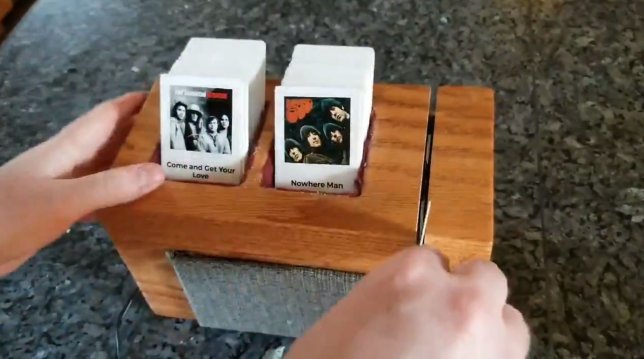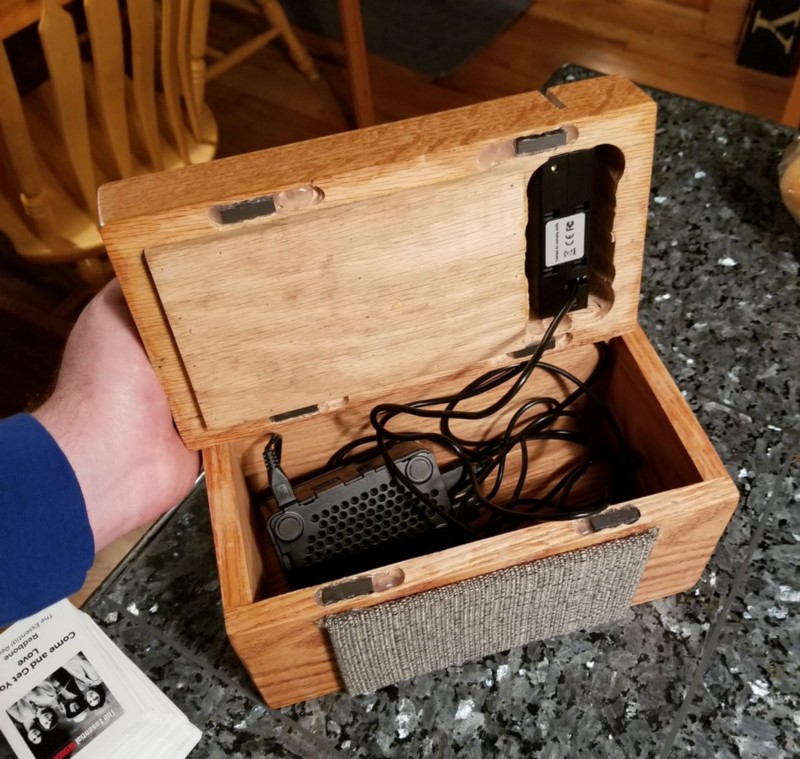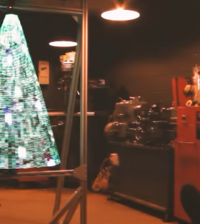- How to Adjust X and Y Axis Scale in Arduino Serial Plotter (No Extra Software Needed)Posted 7 months ago
- Elettronici Entusiasti: Inspiring Makers at Maker Faire Rome 2024Posted 7 months ago
- makeITcircular 2024 content launched – Part of Maker Faire Rome 2024Posted 9 months ago
- Application For Maker Faire Rome 2024: Deadline June 20thPosted 10 months ago
- Building a 3D Digital Clock with ArduinoPosted 1 year ago
- Creating a controller for Minecraft with realistic body movements using ArduinoPosted 1 year ago
- Snowflake with ArduinoPosted 1 year ago
- Holographic Christmas TreePosted 1 year ago
- Segstick: Build Your Own Self-Balancing Vehicle in Just 2 Days with ArduinoPosted 1 year ago
- ZSWatch: An Open-Source Smartwatch Project Based on the Zephyr Operating SystemPosted 1 year ago
Handmade Raspberry Pi Jukebox Controlled by Swipeable Song Cards

The designer Chris Patty used his impressive skills to make the retro gadget after his family promised to exchange homemade gifts this Christmas.
The homemade Jukebox he created is deceptively simple, too: there’s a Raspberry Pi inside the box itself, and Patty created his own software to run on the hardware.
Songs are stored locally on an SD card inside the box, and each one is pulled up when a custom-made swipeable card, with a magnetic stripe similar to a credit card, is swiped.
The box comes with a number of cards, each containing the name of an artist, song, and some album art.
While some might not be impressed by the limited number of tracks available, Patty says it’s this very element that makes the jukebox so appealing.
“I think [the response] speaks to a shared displeasure with the current state of our music services,” Patty tells The Verge in an email. The limitless libraries inside Apple Music and Spotify cheapen the experience, he says. “There’s something about the limiting factors of physical media that force you to choose … the music that is most meaningful. And that kind of curation, I think, is something we all deeply miss.”
He even revealed that he’s planning to make it open source, and will do a Kickstarter for the device for those that are less DIY-inclined.
















